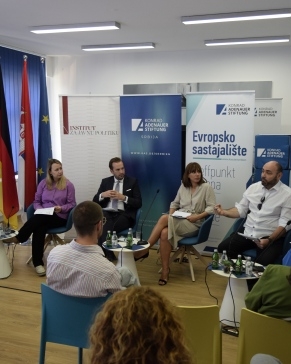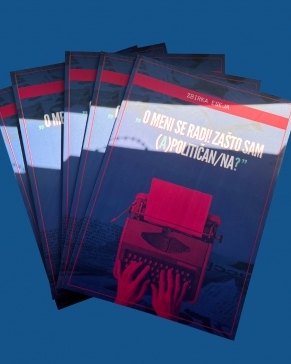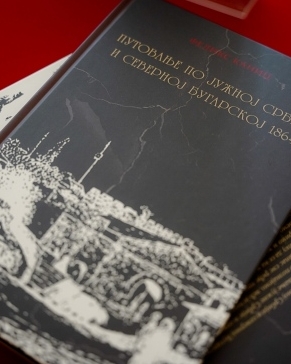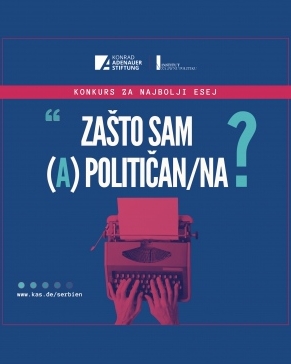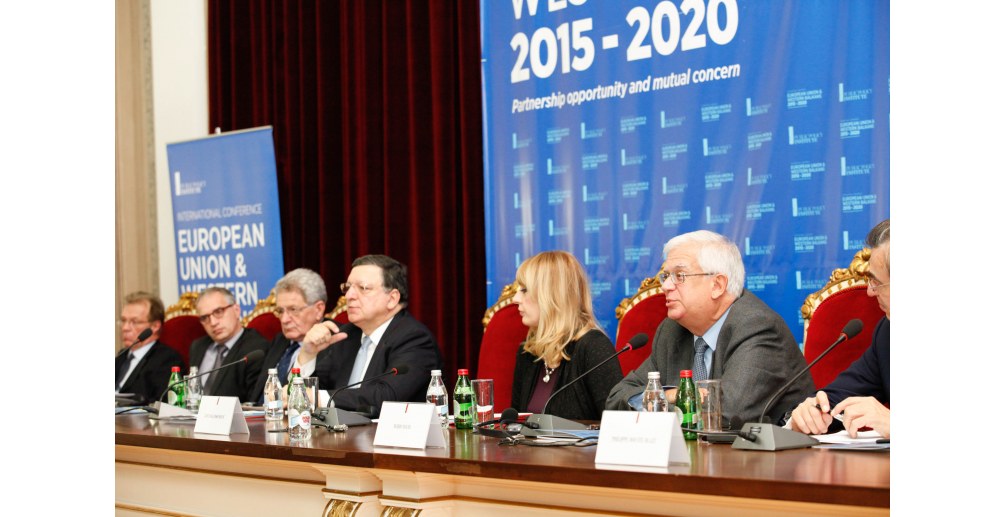
Public Policy Institute organized an International Conference “European Union and Western Balkans – Partnership opportunity and mutual concern” and thus celebrated the first anniversary of the Institute’s office in Belgrade. The conference was held in the Ceremonial Hall in Rectorate of the University of Belgrade.
The anniversary celebration was honored by presence and participation of the European Commission President for two terms José Manuel Barroso. Beside him as a key speaker, the other panelists on the conference were numerous European and national politics and diplomats, officials of the United Nations, but also prominent rectors and representatives of the academic community from leading Universities of Serbia, Monetengro and Bosnia and Herzegovina.
Barroso, who has spent past 10 years as a head of the European Commission, said at the conference that future of the Western Balkans countries is in European Union and that they will become members of the European family of nations not that far in the future.
Noting that he could not predic how long it will be necessary for Belgrade to join EU, Barroso said that Serbia will become a member of EU, if state wants to achive that goal and to fulfill all conditions that the other EU countries also achived.
Membership in the EU do not take away the influence and power of the countries, totally opposite, increases them, said Barroso and also mentioned that he expects that the process of enlargement of the Union will continue, despite the allaged “fatigue”, because it is in their mutual interest.
As he said, the previous enlargement of the European Union was a great success. Statistics shows that Poland, after admision to the Union, developed itself much more than Ukraine, which is not a member of the Union. The former Portuguese prime minister said that he is very proud because during his tenure the dialoge between Belgrade and Priština begun and declared that the relations between Belgrade and Priština today are much better and that is very important for whole region because Serbia is his central country.
Minister in charge of European Integrations in the Government of the Republic of Serbia Jadranka Joksimović pointed out that Serbia knows that foreign policy has to be gradually harmonized with the European Union and that Serbia unambiguously wants to be a part of EU.
United Nations Under-secretary-general in charge of innovative financing for development Philippe Douste Blazy said that membership in EU has strategic and economic benefits and underlined that the EU is a project of peace which shows todays situation in Ukraine. Blazy said that the images of Ukraine where young Ukrainians waving flags of the EU shows that Union is for them symbol for better future, peace and success. Blazy mentioned that within the borders of EU, Serbia can solve many problems more efficiently and that the only way to respond to international problems is fellowship, not isolation.
Blazy said that membership brings economic benefits, since it opens the door to an enormous market. Causes for skepticism must be seriously considered and as one of the possible cause for such position he mentioned the fact that 20 million people today in the EU don’t have job and among them there are five million young people.
Vice President of the European People’s Party and member of the European Parliament Mario David said that he does not believe that there is fatigue in EU enlargement and that Serbia don’t need to stop trying , but to continue reforms in the society.
The Secretary General of the Regional Cooperation Council Goran Svilanović expressed his belief that Serbia in the next five years will complete technical negotiations in the process of European integrations. Aleksandar Andrija Pejović, the Chief negotiator to EU in the Government of the Republic of Montenegro talked about Montenegro’s experiences in the negotiation process between Podgorica and EU.
About the role of academic institutions in the Europen integrations spoked prof. Radmila Vojvodić, who is the first woman Rector of the University of Montenegro, Vice-Rector for science at University of Belgrade and a longtime professor at the Faculty of Technology and Metallurgy Ivanka Popović, and in the name of organizers spoked members of Public Policy Institute, professors at the University of Belgrade Mijat Damjanović, Nikola Samardžić and Stevan Lilić.
With the conference Public Policy Institute celebrated the first anniversary of the successful work of the office in Belgrade. First, Institute opened office in Podgorica, during this year the office is opened in Ljubljana and it is expected that the offices in Sarajevo and Priština start they work next year. The conference was held at the beginning of a new five-year mandate of the European Commission and in the context of celebration of the 25th anniversary of the Berlin Wall fall and the 10th anniversary of the accession of Eastern European and two Mediterranean countries in the EU.
Public Policy Institute will continue to encourage public dialog between various public, political and economic entities and groups. The aim of the Institute is to undertake projects that are important for political progress, identify potential threats to social progress, anticipate future problems and offer new ideas for solving problems policies.
Photo gallery from the conference can be found HERE.

